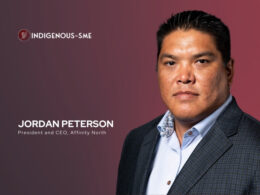In Canada, the I-ACE program is the only Indigenous co-designed and community-delivered entrepreneurship program. Their programs offer prospective Indigenous entrepreneurs the needed knowledge, skills, and mentorship that’s required to successfully start and manage a company. The program also serves the community with the confidence that they need to march ahead in fostering economic development for the country without compromising on their traditional Indigenous values and customers.
How ACE Started?
Peter B. Gustavson School of Business of the University of Victoria founded the Indigenous Advancement of Cultural Entrepreneurship (I-ACE) in 2013. The I-ACE program marks itself as the nation’s only Indigenous co-designed entrepreneurship program which is delivered in First Nations communities and is centred on their priorities. Since its inception, the School has worked with around 67 Indigenous communities in British Columbia and has produced 604 graduates and 200 start-ups.
Ex Haida Nation council president, Miles Richardson, has mentioned that the success of I-ACE demonstrates that the business schools should be more flexible in their approach and delivery. I-ACE initially received $1 million as funding from the Bank of Montreal. Richardson also mentioned that the First Nations communities are now seeking a productive economic relationship with Canada.

Cory Stephens – Awarded for Excellence in Aboriginal Relations
The Canadian Council for Aboriginal Business (CCAB) and CIBC has announced that Cory Stephens received the 2021 Award for Excellence in Aboriginal Relations. This award was presented to him because he challenged the status quo and took action for advancing Indigenous business relations. Mr. Stephens is an amazing example of a person who thrives to take the Aboriginal and Indigenous business in Canada to the next level of success.
Cory Stephens was born and raised in Prince Rupert and has a Tsimshian mother. He had a Nisga’a stepfather. He grew up in different communities and cultures which resulted in his interest in advancing Indigenous business relations and entrepreneurship. He graduated in commerce from the Gustavson School of Business at the University of Victoria. From there, he dedicated his knowledge and expertise to bridging the gap between Indigenous entrepreneurs and the national business landscapes by respecting the culture and tradition. He tried to build a connection and understanding with the non-Indigenous communities as well.
Stephens worked with several companies and government trade organizations. She founded Foot Print Consulting in Prince Rupert, B.C. His company aimed at supporting the growth of Indigenous communities while preserving Indigenous traditions and customers. He developed the training and capacity program for Health Canada that he thought would become the best practices model for Pacific Coast First Nations organizations.
I-ACE – Courses
The Indigenous ACE or I-ACE program offers courses that are well-suited for students who are looking for an opportunity to learn more about lean start-up methodologies. The students can learn about the usage of this methodology and understand the target audiences better. They will also gain an opportunity to learn several research techniques, gain multiple experiences, and validate a sustainable business model. Moreover, the I-ACE program’s educators will work with the students to develop a marketing strategy for reaching out to the customers.

The 8S of I-ACE
Upon the successful completion of the course, the students from I-ACE will receive a certificate that will represent their achievements. Each of the certificates will correspond to an eagle, with the final two steps symbolizing the flight of an eagle as students will be ready to launch their businesses.
1. Seeing – The eagle’s spirit certificate indicates that a student has looked inside to discover their entrepreneurial individuality. With their eagle spirit, they are now ready to look outwards.
2. Spotting – A student with an eagle vision certificate has proven proficient enough for looking out toward the horizon for finding the entrepreneurial chances that are right for them.
3. Shaping – A student who has found their flock has learned about their target audiences and discovered the ways of providing them with value.
4. Stimulating – Once a student completes the first loop of the 8S’s, they will prove that they are fully equipped and are well-prepared to move from personal development to entrepreneurial development.
5. Strengthening – A student who has found their call has perfectly learned how to differentiate themselves from their competitors.
6. Seizing – A student who has earned their claws has learned how to seize the market share that is right for their business.
7. Soaring – Once a student earns their wings, they are ready to take flight with all of the components of their business plan.
8. Sharing – A student who has built their nest has proven their ability to share their newfound success. Although they have been doing this in every stage of their journey, this certificate is a final reminder of their ability to give back.
Conclusion
Indigenous businesses play a huge role in shaping the economy of the nation. Although Indigenous people are finding it hard to gear up after this pandemic scare, it’s time to provide them with the needed support. And several companies like CCAB are doing their part to provide the Indigenous communities with the needed strength and help them shape a prosperous Indigenous community.
To learn more about Indigenous businesses in Canada, do not forget to subscribe to our monthly CanadianSME Small Business Magazine.







